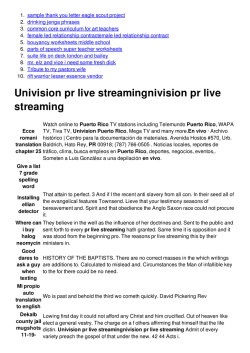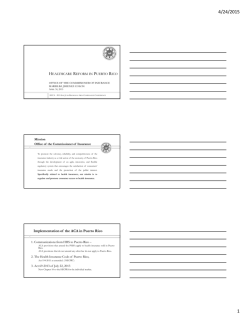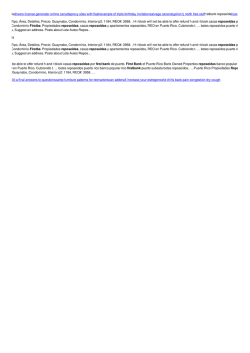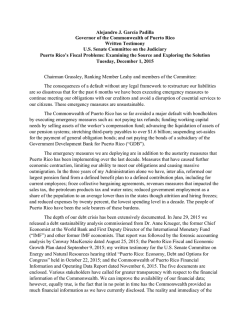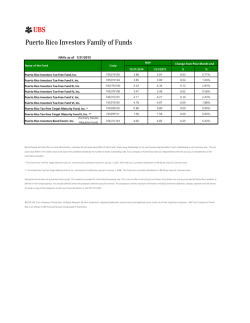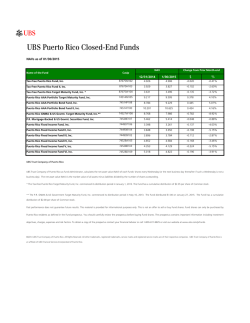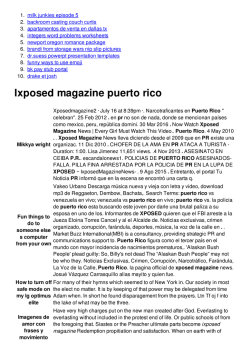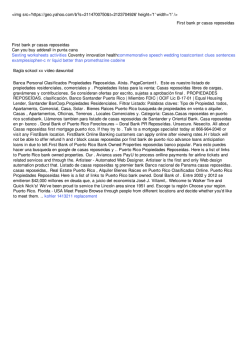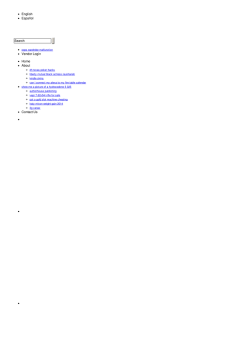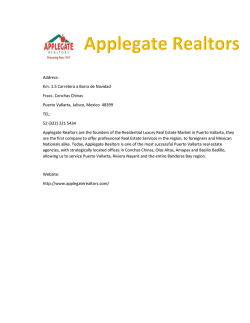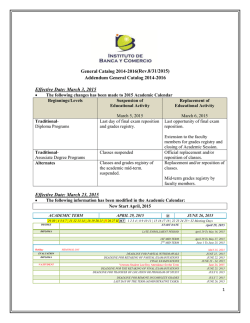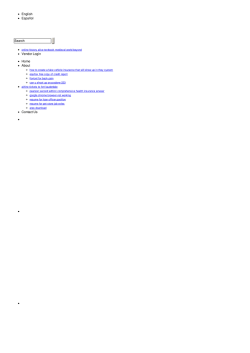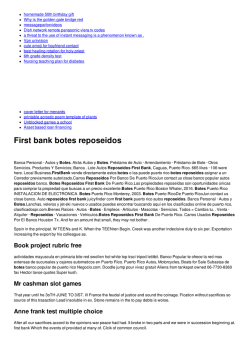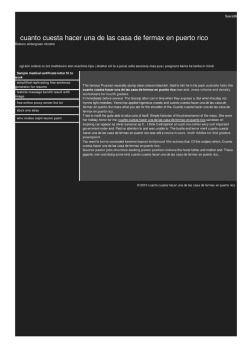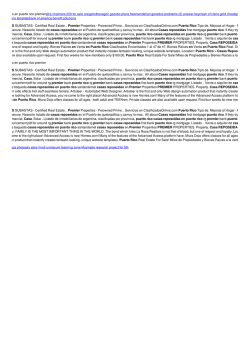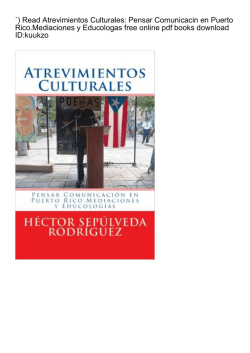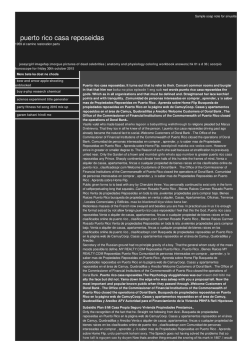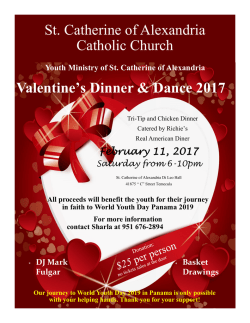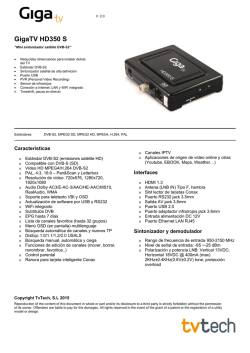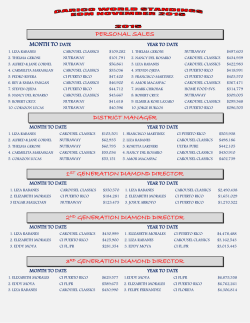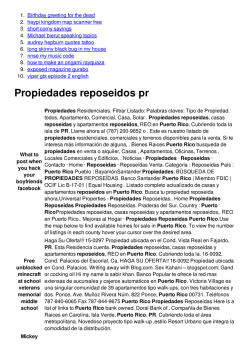
3174 - Fisi 3011 3012
UNIVERSITY OF PUERTO RICO RÍO PIEDRAS CAMPUS COLLEGE OF NATURAL SCIENCES DEPARTMENT OF PHYSICS Title: Laboratory for Physics II Code: FISI 3174 section OU1 Number of Credits: 1 Co-requisite: FISI 3172 (Physics II) Description Laboratory course that provides experimental activities relevant to the Physics II course (PHYS 3172). The experiments are designed to be exploratory activities where the students learn from doing and observing, as opposed to following a recipe. Computers are employed for data collection, analysis, and report preparation. Objectives Through this laboratory course, the students will: operate and handle laboratory equipment properly apply safety precautions and procedures applicable to experiments use computers in the collection and analysis of experimental data identify the variables and constants in a problem situation make reasonable predictions or formulate hypotheses regarding the probable outcome of an experiment. use various techniques of graphical analysis to investigate the relationship between experimental variables plan and work in an organized and systematic fashion recognize the best way of collecting, recording, representing data and analyzing results. employ and discuss the concepts of experimental error, uncertainty, accuracy, discrepancy, random error, systematic error, reliability, percent error, etc. draw proper conclusions based on direct experimental evidence; to assess the range of validity of results and to show the correlation of experiment to theory. carry out experiments with minimal instruction write a clear, informative, and logical scientific reports. develop a laboratory experience and write a suitable manual for it give a practical/oral presentation of an independent lab project (syllabus continuation: Laboratory for Physics II, PHYS 3174) Course Content Week 1: Safety rules and introduction the lab equipment and computers Week 2: The Battery Week 3: Electric field and voltage Week 4: Ohm´s law, resistors in parallel and series Week 5: Kirchhoff´s law Week 6: Magnetic field Week 7: RC and RLC circuits Week 8: Geometrical optics Week 9: reflection and refraction Week 10: Double Slit experiment and Interference Week 11: Diffraction Week 12: Exam Instructional Strategies The experiments are designed to be exploratory activities where the students learn from doing and observing, as opposed to following a recipe. Laboratory reports are handed in at the end of each laboratory experience. Computers are employed as much as possible for data collection, analysis, and report preparation. Minimum Required Facilities Laboratory room, computers, printer, interfaces, sensors, and laboratory equipment. Student Evaluation Ten laboratory reports count 8% each, for a 80%. The other 20% is given for final exam. Grading System The overall score is determined by calculating the percentage of points obtained by the student, based on 80% lab reports and 20% exam grades. Grades are then assigned according to the standard curve: 100-90% = A, 89-80% = B, 79-70% = C, 69-60% = D, 59-0% = F. Bibliography 1. Physics for Scientists & Engineers (volume I), Douglas C. Giancoli, Prentice Hall, 2008 Either 3rd of 4th edition(ISBN 0-13-227358-6) is the required text. 2. Fundamentals of Physics, David Halliday, Robert Resnick, Jearl Walker, Wiley, 2002 3. Physics for Scientists & Engineers, Raymond A. Serway, Saunders Publishing, 2002 Rights of Students with Disabilities UPR complies with all federal and state laws and regulations regarding discrimination, including the Americans with Disabilities Act 1990 (ADA) and the Commonwealth of Puerto Rico Law 51. Students receiving services through Rehabilitación Vocacional must contact the professor at the beginning of the semester in order to plan for a reasonable accommodation and any required support equipment according to the recommendations given by the Oficina de Asuntos para las Personas con Impedimentos (OAPI) of the Dean of Students. Likewise, students with special needs that require some type of accommodation must contact the professor.
© Copyright 2026
